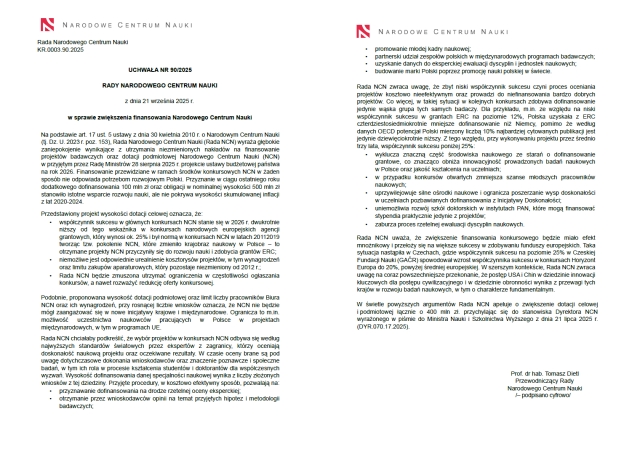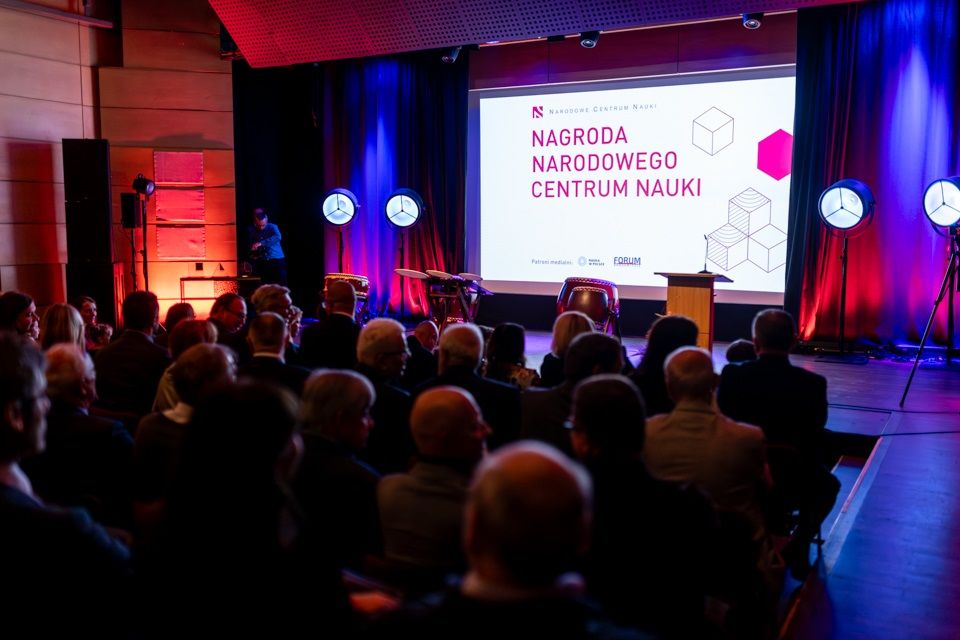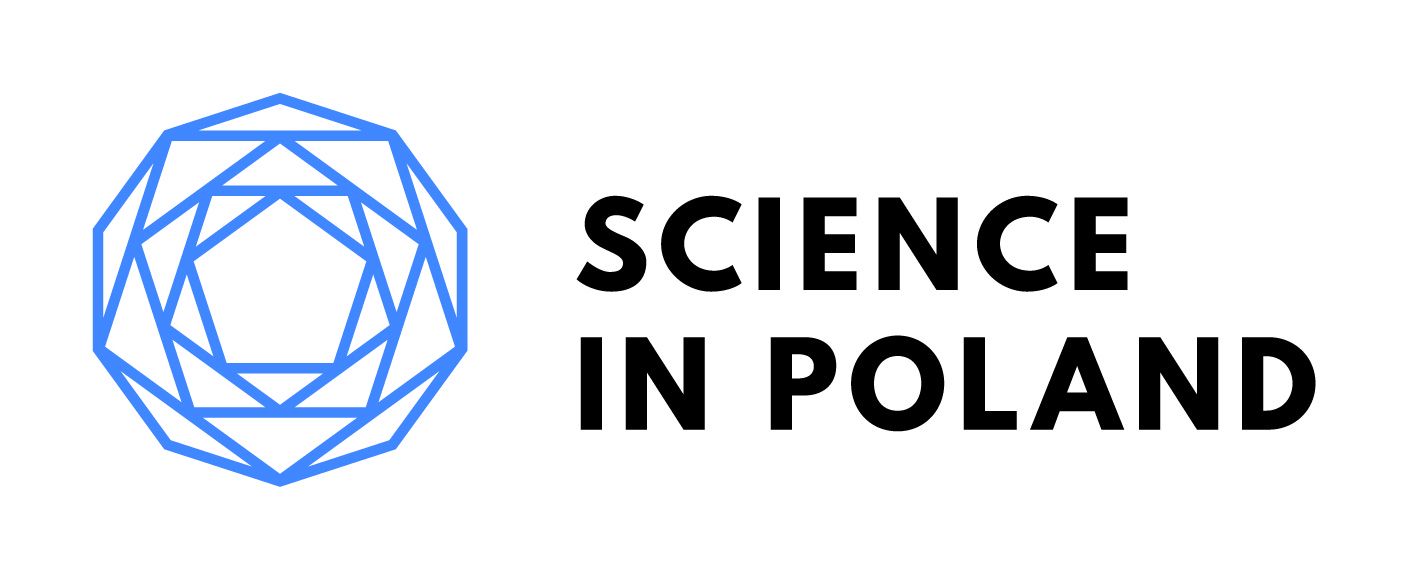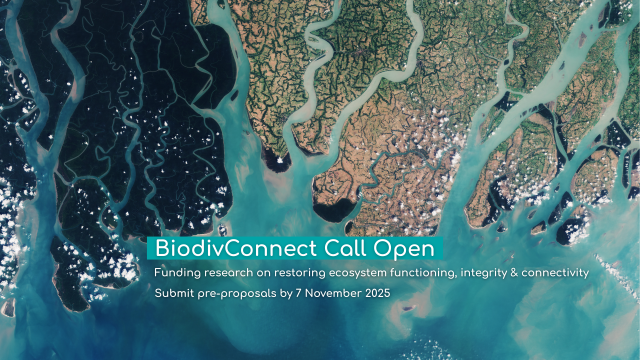15 September 2025
The National Science Centre (the “NCN”) has launched the OPUS 30 LAP/Weave call for research projects. The call is open to proposals for research projects carried out in international bilateral or trilateral cooperation under the Weave programme as well as projects carried out with the use of large international research equipment by the Polish research teams. The call is addressed at researchers at researchers at any stage of their academic careers, who are planning:
- research projects without foreign participation (OPUS proposals),
EXAMPLE: A research project carried out by a research team affiliated with a Polish institution.
- research projects implemented by Polish research teams with the use of large international research equipment (OPUS proposals),
EXAMPLE: A research project carried out by a research team affiliated with a Polish institution, using data from the Gaia space mission launched by the European Space Agency in 2013.
- research projects with participation of foreign partners that do not apply for funding for that purpose under the Weave programme (however, foreign teams may apply for funding under other research-funding programmes that are not co-launched by the NCN pursuant to the LAP under the Weave programme) (OPUS proposals),
EXAMPLE: A research project carried out by a research team affiliated with a Polish institution (applying for NCN funding of the Polish part of the research project), in partnership with Spanish partners that seek independent funding for the Spanish part of the project from other sources.
- research projects in additional partnership with foreign partners that do not apply for funding for that purpose under the Weave programme and with additional use of large research equipment (OPUS proposals),
EXAMPLE: A research project carried out by a research team affiliated with a Polish institution (applying for NCN funding for the Polish part of the research project), using data from the Gaia space mission launched by the European Space Agency in 2013, in partnership with Spanish partners that seek independent funding for the Spanish part of the project from other sources.
- research projects within the framework of LAP cooperation under the Weave programme, i.e., in cooperation with foreign research teams from Austria, Czechia, Slovenia, Germany, Switzerland, Luxembourg or Belgium-Flanders that seek parallel funding of the projects from their respective research-funding agencies under the Weave programme, i.e., to FWF, GAČR, ARIS, DFG, SNSF, FNR or FWO (OPUS LAP proposals),
EXAMPLE: A research project carried out by a research team affiliated with a Polish university (applying for NCN funding of the Polish part of the project) in partnership with a German research team that seeks funding from the DFG within the framework of the Weave programme.
- research projects within the framework of LAP cooperation under the Weave programme, in partnership with foreign partners that do not seek funding for that purpose under the Weave programme or with the additional use of large research equipment (OPUS LAP proposals).
EXAMPLE: A research project carried out by a research team affiliated with a Polish institution (applying for NCN funding of the Polish part of the project) in partnership with a German research team applying for DFG funding within the framework of the Weave programme and in partnership with Spanish partners that seek independent funding for the Spanish part of the project from other sources.
International cooperation is not mandatory under OPUS 30 and proposals submitted in partnership with foreign partners will not be given preferential treatment over proposals submitted without such partnerships.
The call budget is PLN 550 million.
Proposals must be submitted electronically via the OSF submission system (https://osf.opi.org.pl/en/) pursuant to the proposal submission procedure.
The proposal form will be accessible in the OSF submission system as of 17 September 2025, and the deadline is 15 December 2025, at 2:00 p.m.
OPUS LAP proposals drafted by a Polish research team in partnership with foreign research teams must be submitted via the OSF submission system by 15 December 2025, at 2:00 p.m. Furthermore, each foreign research team involved in a project within the framework of Weave cooperation, must also submit a funding proposal, including a set of required documents, to its respective research-funding agency, by the date and according to the terms specified thereby. Proposals must be submitted as follows:
- research teams from Austria: to the FWF;
- research teams Czechia: to the GAČR;
- research teams from Slovenia: to the ARIS;
- research teams from Germany: to the DFG;
- research teams from Switzerland: to the SNSF;
- research teams from Luxembourg: to the FNR; and
- research teams from Belgium-Flanders: to the FWO.
The call results will be published as follows:
| OPUS proposals |
OPUS LAP proposals |
|---|
|
within 6 months of the proposal submission date
by the end of June 2026
|
within 11 months of the proposal submission date, depending on the date the evaluation is approved by the partner institutions from the other countries
by the end of November 2026
Call timeline for OPUS LAP proposals:
- in partnership with foreign research teams from Austria, Czechia, Switzerland, Luxembourg and Belgium-Flanders: end of July 2026
- in partnership with foreign research teams from Slovenia and Germany: end of October 2026
|
Significant modifications:
- the principal investigator is required to spend at least 50% of the project duration period in Poland or at the foreign division of the participating entity, and be available to the participating entity;
- the qualifications and scientific achievements of the principal investigator will not be evaluated by external experts;
- the post-doc’s remuneration rate has been updated to PLN 140,000 - 210,000 per year;
- it is no longer required to justify post-doc’s remuneration over PLN 140,000 per year;
- the research fellowship can now be pursued during the course of studies and its duration has been reduced from 10 to 9 months;
- there is a new maximum limit on salaries and scholarships for students and PhD students of PLN 8,500 for each student or PhD student under NCN-funded research projects;
- the doctoral scholarship rate has been increased to PLN 6,500;
- the restriction on receiving NCN full-time salary alongside pension benefits has been extended to include equivalent foreign benefits (the modification applies to all types of full-time salaries for principle investigators, post-docs, senior researchers, and supporting staff);
- the policy of open access publication of research results has been updated;
- the definition of a collective investigator has been modified.
Show all»
Hide all«
Proposals may be submitted to the call by entities specified in the Act on the National Science Centre, namely:
- universities;
- federations of science and higher education entities;
- research institutes of the Polish Academy of Sciences operating pursuant to the Act on the Polish Academy of Sciences of 30 April 2010 (Journal of Laws of 2020, item 1796, as amended);
- research institutes operating pursuant to the Act on Research Institutes of 30 April 2010 (Journal of Laws of 2024, item 534);
- international research institutes established pursuant to separate acts, operating in the Republic of Poland;
5a. Łukasiewicz Centre operating pursuant to the Act on the Łukasiewicz Research Network of 21 February 2019 (Journal of Laws of 2024, item 925 and 1089);
5b. institutes operating within the Łukasiewicz Research Network;
5c. Centre of Postgraduate Medical Education operating pursuant to the Act on the Centre of Postgraduate Medical Education of 13 September 2018 (Journal of Laws 2024, Items 570 and 1897),
- Polish Academy of Arts and Sciences;
- other institutions involved in research independently on a continuous basis;
- groups of entities (at least two entities mentioned in sections 1-7 or at least one institution as such together with at least one company);
- scientific and industrial centres within the meaning of the Act on Research Institutes of 30 April 2010 (Journal of Laws of 2022, item 498);
- research centres of the Polish Academy of Sciences within the meaning of the Act on the Polish Academy of Sciences of 30 April 2010 (Journal of Laws of 2020, item 1796);
- scientific libraries;
- companies operating as research and development centres within the meaning of the Act on Certain Forms of Support for Innovative Activity of 30 May 2008 (Journal of Laws of 2021, item 706 and of 2022, item 1079);
- legal entities with registered office in Poland;
13a. President of the Central Office of Measures;
- natural persons and
- companies conducting research in another organisational form than laid down in sections 1-13a.
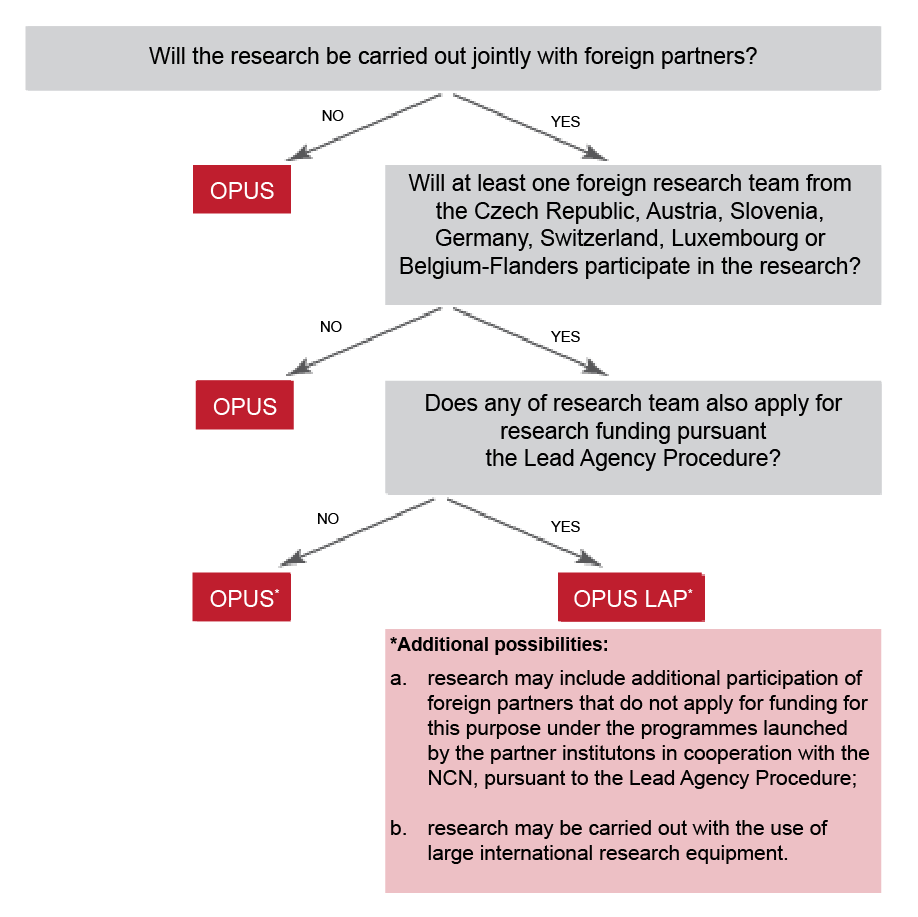
Researchers with or without a PhD degree whose scientific achievements include at least one research paper published or accepted for publication are eligible to act as principal investigators. In the case of research in the arts, the principal investigator must have at least one paper published or accepted for publication or at least one artistic achievement or achievement in research in art completed. The proposal must include artistic works and/or achievements covering the period of the last 10 years before the proposal submission year (as of 2015). In specific cases, this period can be extended (by long-term (in excess of 90 days) documented sick leaves or physiotherapy leaves granted on account of being unfit to work. In addition, this period may be extended by the number of months of a childcare leave granted pursuant to the Labour Code and in the case of women, by 18 months for every child born or adopted child, whichever manner of accounting for career breaks is preferable.
In the case of OPUS LAP proposals, a principal investigator of each research team involved in the project must be specified, i.e., two principal investigators in the case of bilateral cooperation and three in the case of trilateral cooperation, including a principal investigator for the Polish research team and principal investigator(s) for the foreign research team(s).
The principal investigator is required to spend at least 50% of the project duration period in Poland or at the foreign division of the participating entity, and be available to the participating entity. The foregoing obligation does not apply to evidenced project-related business trips or holiday, time off work and other absence from work governed by the applicable laws.
Furthermore, the principal investigator for the Polish research team must be employed at the host institution for the Polish part of the research project for the entire project duration period pursuant to at least a part-time employment contract. The employment requirement does not apply to persons receiving pension under the social insurance scheme.
The Weave programme relies on multilateral cooperation between the research-funding institutions associated in Science Europe and is aimed at simplifying the proposal submission and evaluation procedure concerning multilateral international research projects. The programme follows the Lead Agency Procedure (LAP) which is a new proposal review standard adopted by European research-funding institutions, designed to make it easier for international research teams to seek funding for joint research projects, as well as to streamline the process of proposal review by research-funding institutions. The procedure rests on the following key principles:
- the use of domestic calls carried out by partner agencies to perform a merit-based evaluation of domestic as well as international bilateral and multilateral proposals, which compete on equal terms with domestic proposals;
- trust in the quality of peer review among cooperating institutions.
This allows for funding proposals for joint projects involving at least two research teams from different countries to conduct joint research to be reviewed by one institution only, known as the lead agency, relevant to one of the teams involved in the project, under a scheme from its regular call portfolio. The results of a merit-based evaluation performed by the lead agency are then approved by the other institutions co-launching the call, which award funding to research projects recommended for funding as a result of that evaluation.
In the case of OPUS 30, the LAP cooperation is possible under the Weave programme cooperation between the NCN and:
- FWF – Austrian Science Fund;
- GAČR – Czech Science Foundation;
- ARIS – Slovenian Research and Innovation Agency;
- DFG – German Research Foundation;
- SNSF – Swiss National Science Foundation;
- FNR – Luxembourg National Research Fund;
- FWO – Research Foundation – Flanders.
The Polish research team is the coordinating applicant that submits OPUS LAP proposals to the NCN. The NCN as the lead agency under OPUS 30 will perform a merit-based evaluation of OPUS LAP funding proposals for research projects carried out by research teams from Poland, as well as Austria, Czechia, Germany, Slovenia, Switzerland, Luxembourg or Belgium-Flanders.
Proposals for research projects carried out in bilateral or trilateral cooperation between research teams from Poland, Austria, Czechia, Germany, Slovenia, Switzerland, Luxembourg and Belgium-Flanders in which the FWF, GAČR, DFG, ARIS, SNSF, FNR and FWO act as the lead agency, can be submitted to the Weave-UNISONO call.
Restrictions on submitting proposals are laid down in Chapter III of the Regulations on awarding funding for research tasks funded by the National Science Centre as regards research projects.
A researcher may be named as the principal investigator in only one proposal which means that in the present edition of NCN calls, a researcher can only be named once as the principal investigator in an OPUS proposal, OPUS LAP proposal or SONATA proposal.
Proposals covering research tasks overlapping tasks specified in another proposal submitted earlier may only be submitted after the NCN Director’s decision to refuse funding has become final, subject to §22.
An NCN Council member must not be named as the principal investigator or research team member or mentor in a proposal submitted during their term of office as the NCN Council member. A researcher who no longer sits on the NCN Council can be named as the principal investigator in a proposal at least 4 months* after the date of their ceasing to act as the Council member.
*This condition must be met on the end date of the call for proposals.
The total number of NCN projects managed by a researcher and proposals submitted to the NCN and subject to evaluation or recommended for funding in which that researcher is named as the principal investigator, must not be more than two, or three if the researcher manages at least one project funded under an international NCN call or has submitted at least one proposal to an international NCN call.
The table below illustrates the eligible funding requests.
| Number of NCN research projects I manage 1 and proposals 2 I have submitted to the NCN |
Can I submit another funding proposal? |
|---|
|
Total
|
Research projects OR proposals in domestic calls3
|
Research projects OR proposals in international calls4
|
domestic call
|
international call
|
|
0
|
0
|
YES
|
YES
|
|
1
|
1
|
YES
|
YES
|
|
2
|
2
|
0
|
NO
|
YES
|
|
2
|
1
|
1
|
YES
|
YES
|
|
2
|
0
|
2
|
YES
|
YES
|
|
≥3
|
3
|
NO
|
NO
|
Explanation:
1 Project management applies to the period from the date of signing the funding agreement under NCN calls until the date of submitting the final report on the project performance.
2 The limit applies to proposals pending evaluation or recommended for funding.
3 Research projects or proposals under NCN calls: OPUS, PRELUDIUM, SONATINA, SONATA, SONATA BIS, MAESTRO and research projects under HARMONIA,SYMFONIA, Covid-19.
4 The calls launched by the NCN in collaboration with foreign research-funding agencies include:
- calls launched under EU-funded programmes, e.g., ERA-Net and European Partnerships (UNISONO, POLONEZ, POLONEZ BIS);
- non-EU-funded calls launched by the networks of research-funding institutions, including within the framework of LAP cooperation (OPUS LAP/ WEAVE, WEAVE UNISONO, IMPRESS-U);
- calls in bilateral collaboration between the NCN and foreign partner institutions (GRIEG, POLS, IDEALAB, BEETHOVEN, BEETHOVEN CLASSIC, BEETHOVEN LIFE, CEUS, MOZART, ALPHORN, DAINA, SHENG).
The limits do not include:
- PRELUDIUM BIS, DIOSCURI, TANGO, and ARTIQ projects/ proposals;
- MINIATURA proposals/ research activities;
- NAWA proposals/ research components;
- FUGA and UWERTURA fellowships;
- ETIUDA scholarships;
- Special funding scheme for researchers from Ukraine to continue research in Poland and special scholarship programme for students and early-career researchers from Ukraine.
Basic research proposals may be submitted to the call in any of 26 NCN panels within three areas:
- HS – Humanities, Social Sciences and Art Sciences;
- ST – Physical Sciences and Engineering;
- NZ – Life Sciences.
Proposals are reviewed within the panels to which they have been submitted (e.g., HS1, ST1, NZ1). The principal investigator selects the panel. The panel cannot be changed once the proposal has been submitted. If an incorrect panel is selected, proposals may be rejected.
Under the call, projects can be carried out over the period of:
| OPUS proposals |
OPUS LAP proposals |
|---|
- 12 months
- 24 months
- 36 months
- 48 months
|
- cooperation with research partners from Austria, Switzerland, Slovenia, Luxembourg and Belgium-Flanders:
- 24 months
- 36 months
- 48 months
- cooperation with research partners from Germany or Czechia:
- no trilateral cooperation between Poland, Czechia and Belgium.
- project duration must be the same (if possible) or as similar as possible for all research teams involved in the project.
|
The terms of the call do not specify the maximum number of research team members.
Apart from the principal investigators, research tasks may also be performed by co-investigators, including students, PhD students, post-docs and senior researchers.
A post-doc type post is a full-time post, scheduled by the project’s principal investigator for a person who has been conferred a PhD degree in the year of employment in the project or within 12 years before 1 January of the year of employment in the project(the period may be extended by evidenced career breaks, in accordance with the section on the costs of the regulations on awarding funding).
A post-doc must have been conferred a PhD degree by an institution other than the one employing them at this position. Otherwise, they must have completed a continuous and evidenced research fellowship of at least 9 months during their studies at the doctoral school, doctoral studies or after being conferred their PhD degree at an another institution than the participating entity for the project and outside the country in which their PhD degree was conferred. A prospective post-doc must be selected in an open call.
PhD students/students who will be NCN scholarship recipients in the project, must be recruited in an open call procedure.
A senior researcher position is a full-time employment position co-financed by the host institution to provide employment for a person who has been conferred a PhD degree at least 7 years before the proposal submission date, has expertise, unique competencies and experience necessary to perform the tasks in the project.
Senior researchers must not be involved in research projects covered by OPUS-LAP proposals.
The rationale of involvement of individual members of the research teams in the project is evaluated by the Expert Team. The proposal must include the description of competencies and tasks of individual members of the research team. For more information on the costs of salaries and scholarships, please refer to the section on the costs of the regulations on awarding funding.
The budget is an important aspect of the proposal and is subject to an of eligibility check and merit-based evaluation.
The project budget must be well-justified as regards the subject and scope of research, based on realistic calculations and must specify the expenditures to be covered by the NCN (eligible costs). The terms of the call do not specify the total maximum or minimum amount of the project costs that can be requested, however an unjustified budget may result in the proposal being rejected.
According to the Regulations, the project budget (eligible costs) includes direct and indirect costs.
Direct costs include funds for:
- remuneration for the principal investigator:
- remuneration for co-investigators in the project:
- full-time employment of post-docs,
- full-time employment of senior researchers,
- salaries and scholarships for students and PhD students,
- additional remuneration for members of the research team; if the principal investigator is not to be employed full-time in the project, their remuneration is paid from the pool allocated for additional remuneration;
- purchase of research equipment, devices and software;
- purchase of materials and small equipment;
- outsourced services;
- business trips, visits and consultations (For OPUS LAP proposals: the costs of consultations and visits of co-investigators from research institutions that receive parallel funding from FWF, GAČR, ARIS, DFG, SNSF, FNR or FWO are not eligible);
- compensation for collective investigators and
- other costs crucial to the project which comply with the Types of costs in research projects funded by the National Science Centre.
Indirect costs include:
- indirect costs of up to 20% of direct costs that may be spent on the costs that are directly related to the project, including the cost of open access to publications and research data,
- indirect costs of open access of up to 2% of direct costs that may only be spent on open access to publications and research data.
For entities applying for state aid, indirect costs including indirect costs of open access and other indirect costs, must not exceed a total of 20% of the direct costs.
During the project implementation, the host institution must agree with the principal investigator the coverage of at least 25% of the indirect costs. Any expenditure made from that amount must be eligible.
For more information on the eligibility of the costs, please go to the Types of costs in research projects funded by the NCN.
OPUS LAP proposals must contain a budget table listing project costs of all foreign research teams involved in the project, drafted in accordance with the respective rules of the FWF, GAČR, DFG, ARIS, SNSF, FNR and FWO. Choose and complete a budget table section in Excel appropriate for the research team.
The budget must include the costs requested by foreign research teams from the FWF, GAČR, DFG, ARIS, SNSF, FNR and FWO identical with the costs specified in the NCN proposals submitted to the said institutions, as well as justifications for the amounts entered. Foreign project budgets in the budget table are subject to a merit-based evaluation to verify whether the project costs are reasonable as regards the subject and scope of research.
If the costs in the budget table are not justified, the proposal may be rejected.
The costs in the budget table must be entered in EUR (budgets of research teams from Austria, Slovenia, Germany, Luxembourg and Belgium-Flanders) and in CZK (budgets of research teams from Czechia) or in CHF (budgets of research teams from Switzerland), according to the following exchange rates:
- EUR 1 = PLN 4,2626
- CZK 1 = PLN 0,1746
- CHF 1 = PLN 4,5611
A completed budget table must be annexed to OPUS LAP proposals.
In the case of OPUS LAP proposals, research projects carried out by the Polish research teams as of 2027 may be planned in the OSF submission system.
For more information and examples of the budget table, please refer to the Guidelines for Polish research teams submitting OPUS LAP proposals.
Applicable version of 10 July 2025
Pursuant to the Open Access Policy, all research results must be, if possible, made available in immediate open access.
The Open Access Policy does not apply to monographs, monograph chapters and peer-reviewed collected papers.
The National Science Centre recognizes the following publication routes as compliant with its Open Access Policy:
- publication in open access journals and on open access platforms registered, or with pending registration, in the Directory of Open Access Journals (DOAJ);
- publication in subscription journals (in which the articles require payment of a subscription fee) and/or hybrid journals (in which some of the articles are open access and some require payment of a subscription fee); in case of publishing in subscription-based model, it is advisable that Author Accepted Manuscript (AAM, i.e. the final manuscript version created by the author, including all the revisions introduced after the peer review, and accepted for publication in the journal; other terms: postprint or author’s accepted manuscript) or preprint, be made available in the repository listed in the Directory of Open Access Repositories (OpenDOAR); if the AAM/preprint is not made available, it will not affect the acknowledgment of expenses or the settlement of the project;
- publication in journals covered by an open access licence within the framework of so-called transformative agreements (which are available within limited time in accordance with the applicable agreements between national publishing consortia; journals covered by Polish transformative agreements are listed on the website of the Virtual Library of Science.
Manuscripts must be published under the following licences:
- Route 1: Creative Commons (CC) licence or equivalent open licence in line with the open access policies;
- Route 2: Version of Record (VoR, i.e. manuscript version published in a journal with its own typeface and branding; other terms: published version or publisher’s pdf), AAM or preprint should be made available in the repository using CC licence or equivalent open licence in line with the open access policies;
- Route 3: CC licence or equivalent open licence in line with the open access policies.
Eligibility of Article Processing Charges:
The costs are eligible for each publication route and each CC licence or equivalent open licence in line with the open licence policies. The NCN does not recommend incurring APC fees for articles published under Route 2, if the AAM or preprint can be made available in the repository at no charge.
The data underpinning scientific publications resulting from the projects must be well-documented pursuant to the standards of the machine or manual findability, accessibility, interoperability or reusability (the so-called FAIR Data). Where possible, data must be made available in the repository using CC0 or CC BY 4.0 licence. Other licences can also be used as long as they ensure an equivalent level of data openness and reusability as CC0 or CC BY 4.0.
The term “data” is understood by the NCN as data collected and unprocessed as well as data generated and analysed, other than scientific publications. The definition comprises all forms, both digital and non-digital.
Proposals in the call may include application for state aid, except where funding is requested by an individual. For more details, please visit the State Aid website.
In the case of research projects carried out in a host institution for which project funding constitutes state aid, funds for students and PhD students can only be planned in the form described in the category “salary for students and PhD students” in the Types of costs in research projects funded by the NCN.
Proposals are subject to an eligibility check followed by a merit-based evaluation.
Eligibility check:
| OPUS proposals |
OPUS LAP proposals |
|---|
|
NCN coordinators
|
NCN coordinators and partner institutions, i.e. FWF, GAČR, ARIS, DFG, SNSF, FNR and FWO, when proposals are submitted by the foreign research teams, according to their respective rules.
|
Only complete proposals that comply with the requirements of the call text are eligible for a merit-based evaluation. A proposal may also be rejected as ineligible at the later stage of evaluation.
Under OPUS 30, OPUS LAP proposals are evaluated together with other proposals submitted to the call.
Proposals approved as eligible are subject to a merit-based evaluation:
Merit-based evaluation
Proposals are subject to a merit-based evaluation performed in two stages by the Expert Teams (whose members are selected by the NCN Council) and external experts who are not Expert Team members:
Stage I: Evaluation by an Expert Team formed by the NCN Council, based on the data included in the proposal and annexes thereto, with the exception of the full project description. Individual reviews are drafted by two members of the Expert Team acting independently. In the case of a proposal which is assigned an auxiliary NCN Review Panel specifying disciplines covered by other NCN review panels than the one to which the proposal was submitted, the Chair of the Expert Team may decide to seek another review from a member of another Expert Team (interdisciplinary proposals).
Then, based on the discussions, a list of proposals recommended for stage II of evaluation is compiled by the Expert Team at the first meeting.
Stage II: Proposals are submitted to at least two reviewers who make individual reviews based on the data included in the proposal and annexes thereto, with the exception of the short project description. Then, based on the reviews of the reviewers and discussions at the second meeting, a ranking short list of proposals recommended for funding is compiled by the Expert Team.
The Expert Team recommends only those OPUS LAP proposals for funding that are among 20% of proposals with the highest rank among all those submitted to the OPUS call under individual NCN review panels. Following the merit-based evaluation, the NCN provides the partner institutions with information on the results thereof together with a list of projects recommended for funding for their approval.
OPUS LAP proposals recommended for funding by the NCN, involving cooperation with German research teams requesting funding from their partner institution Deutsche Forschungsgemeinschaft (DFG), are subject to another review from the DFG. Only proposals successfully reviewed by the DFG can be recommended for funding. The review is performed according to the rules of the partner institution and based on the documents on the evaluation performed by the NCN, including the written review.
The NCN Director awards funding for research projects performed by the Polish research teams, provided that the partner institutions award funding to the foreign research teams.
To find out more on the proposal evaluation procedure, please read the Proposal evaluation procedure for the Expert Teams.
Proposals are reviewed within the panels to which they have been submitted (e.g., HS1, ST1, NZ1). The panel is selected by the principal investigator. The panel must not be changed once the proposal has been submitted. Auxiliary NCN Review Panels allow to choose experts and reviewers to perform the merit-based evaluation of proposals. The Chair of the Expert Team may decide that interdisciplinary proposals be subject to another review by an expert from another panel.
The following aspects are prioritised during proposal evaluation:
- compliance with the basic research criterion;
- quality and innovative nature of research or tasks to be performed;
- impact of the research project on the advancement of the scientific discipline;
- assessment of the feasibility of the proposed research;
- scientific achievements of the principal investigator, including publications in renowned academic press/ journals;
- assessment of the results of research projects conducted by the principal investigator, funded by the NCN or from other sources;
- relevance of the costs to be incurred with regards to the subject and scope of the research and
- preparation of the proposal and compliance with other requirements of the call text.
The proposal evaluation criteria are laid down in the Regulations on awarding funding for research tasks funded by the National Science Centre.
The following aspects are additionally evaluated in the case of OPUS LAP proposals:
- a balanced and complementary contribution of all research teams in the project, which means that the contribution of each team involved in the project must be significant and is necessary, and their respective tasks should complement one another to create a coherent joint research project,
- academic and research career of foreign principal investigators and
- completion of other research projects by the principal investigators of foreign research teams.
Scientific track record, expertise and unique competences of prospective senior researchers as well as rationale of their employment are subject to a merit-based evaluation (OPUS proposals). A proposal may be rejected if those terms are not met and/or justification is missing.
Proposals with a zero score or “no” decision agreed by the Expert Team in any reviewed criterion (except for the data management and ethics issues in research) must not be recommended for funding.
A merit-based evaluation is performed by the Expert Team pursuant to the terms of the call and evaluation criteria laid down in the Regulations on awarding funding for research tasks funded by the National Science Centre.
Expert teams are selected by the NCN Council in accordance with the terms of Expert Team formation. Experts are outstanding Polish and foreign researchers who are at least PhD holders. Expert teams are established for each call edition. The composition of the Expert Team is subject to the number and subjects of proposals submitted to each panel.
Proposals are reviewed by inter-panel teams (HS1, ST1, NZ1). The principal investigator selects the panel. The panel cannot be changed once the proposal has been submitted. If an incorrect panel is selected, proposals may be rejected.
The call results are published on the NCN website and communicated to the applicants by way of a decision by the NCN Director as follows:
| OPUS proposals |
OPUS LAP proposals |
|---|
|
within 6 months of the proposal submission date, by the end of June 2026
|
within 11 months of the proposal submission date, subject to the date the evaluation is approved by the partner agencies, by the end of November 2026.
The call timeline for OPUS LAP proposals:
- in partnership with foreign research teams from Austria, Czechia, Switzerland, Luxembourg and Belgium-Flanders: end of July 2026
- in partnership with foreign research teams from Slovenia and Germany: end of October 2026.
Polish research teams must provide the merit-based evaluation documents to their partner teams involved in the project (co-applicants) for review.
|
For more information on the call, please read the Information for applicants on the NCN website and Guidelines for Polish research teams submitting OPUS LAP/ Weave proposals.
Should you have any more questions or queries, please contact us by e-mail at: informacja@ncn.gov.pl
If you are intending to submit a proposal to the OPUS 30 call:
- read all call documents included in the call text, in particular:
- obtain data from the host institution for the project that is required to complete the proposal and find out about the internal procedures that may affect the proposal and project performance (cost planned in the project, procedure for acquiring signature(s) of authorised representative(s) of the entity to confirm submission of the proposal);
- if a group of Polish entities applies, a research project cooperation agreement must be drafted;
- acceptance letters from publishers must be prepared to confirm that a paper has been accepted for publication (when the scientific achievements section includes papers accepted for publication that have not been published yet).
Before the proposal is submitted to the NCN:
- check that the information in and annexes to the proposal are correct. The verification of the proposal for completeness in the OSF submission system by pressing the Sprawdź kompletność [Check completeness] button does not guarantee that the information has been entered correctly and that the required annexes have been attached;
- check if the tabs have been completed in the correct language according to the guidelines laid down in the proposal form template;
- disable the final version of the proposal to the NCN;
- download and sign the confirmation of proposal submission (principal investigator and authorised representative(s) of the entity);
In addition, in the case of OPUS LAP proposals, the NCN does not require that any documents (agreements) confirming LAP cooperation between Polish and foreign research teams be submitted or signatures of foreign research team members placed on OPUS LAP proposals or other documents annexed thereto.
- attach the confirmation of proposal submission with a signature.
Once the proposal is completed and relevant annexes attached, the proposal must be submitted to the NCN electronically via the OSF submission system using the Wyślij do NCN [Send to NCN] button.
In addition, in the case of OPUS LAP proposals, each foreign research team involved in a project must submit a funding proposal, together with a set of required documents, to its respective partner institution (FWF, GAČR, ARIS, DFG, SNSF, FNR and FWO), by the date and according to the rules specified thereby. If the partner institution requires applicants to submit a copy of the OPUS LAP proposals to its respective submission system, a complete English language version of the OPUS LAP proposal in PDF format must be generated following submission of the OPUS LAP proposal to the OSF submission system, and sent to the foreign research team.
Once the call for proposals has been closed:
- evaluation of proposals will be carried out;
- after each stage of evaluation, the funding decision by the NCN Director will be announced;
- if a proposal is recommended for funding, an OPUS or OPUS LAP funding agreement will be entered into; and
- the project will be carried out pursuant to the funding agreement and Regulations on the implementation of research projects, fellowships and scholarships. In the case of OPUS LAP proposals, research projects must be performed by the Polish and foreign research teams according to the rules of the NCN and respective partner institutions.
In the event of a breach of the call procedure or other formal infringements, applicants may appeal against the decision of the NCN Director with the Committee of Appeals of the NCN Council. The appeal must be lodged within 14 days of the effective delivery of the decision.
Please read the rules according to which the NCN processes personal data. In the case of OPUS LAP proposals, the following partner institutions are joint controllers of personal data:
Data processing information applicable to the Weave programme is available here.
In the case of OPUS LAP proposals in partnership with research teams from Germany, DFG is the data recipient (www.dfg.de/en/service/privacy_policy).

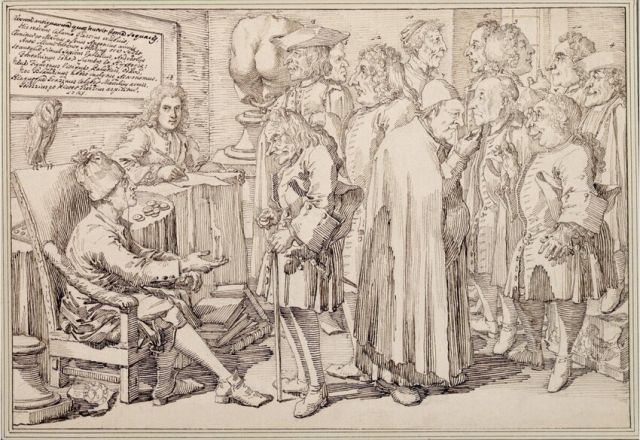
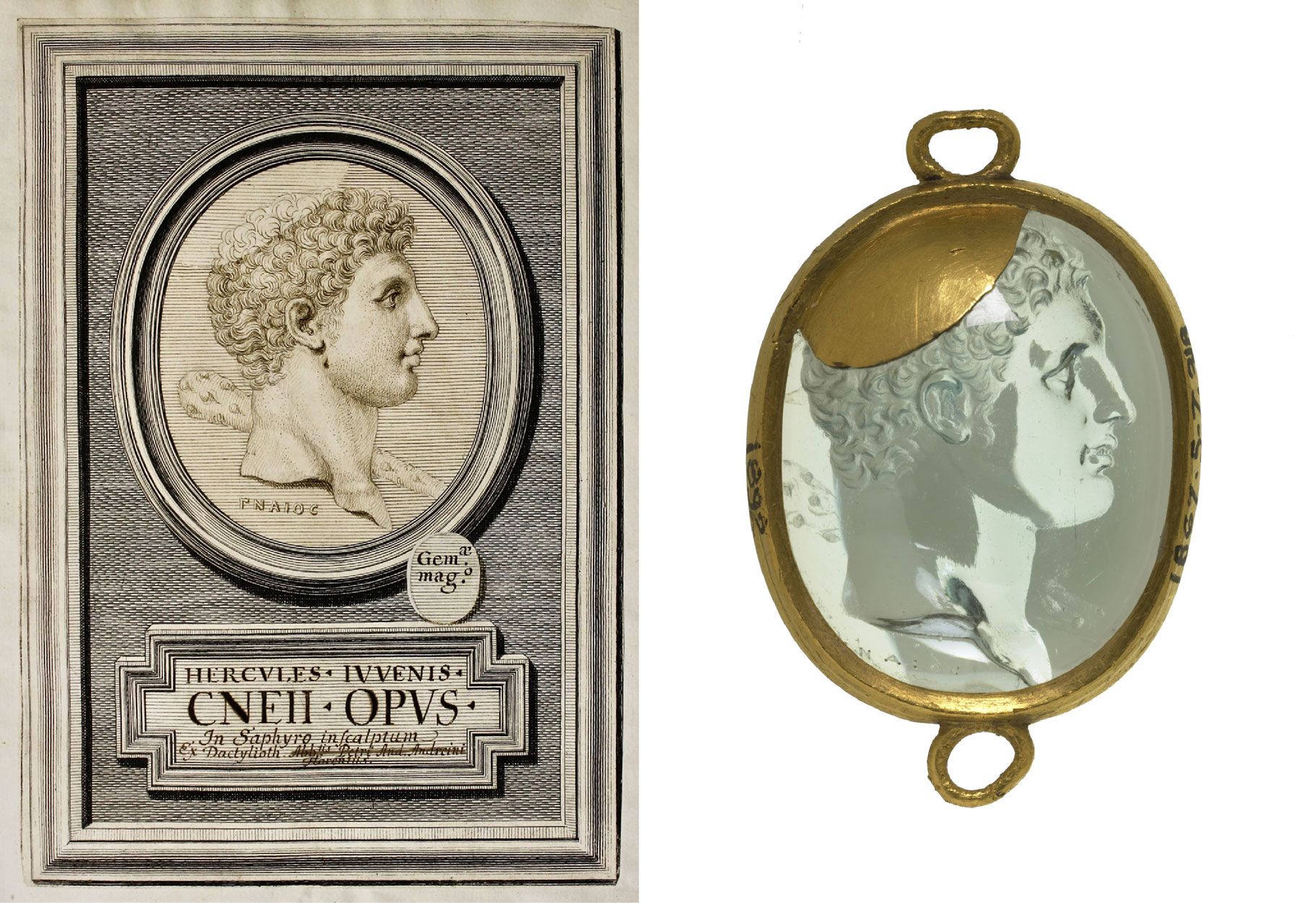
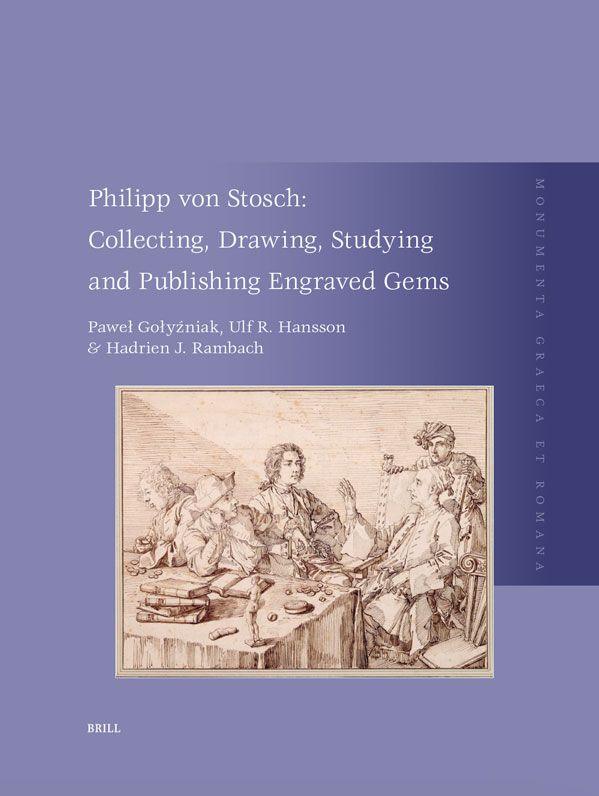
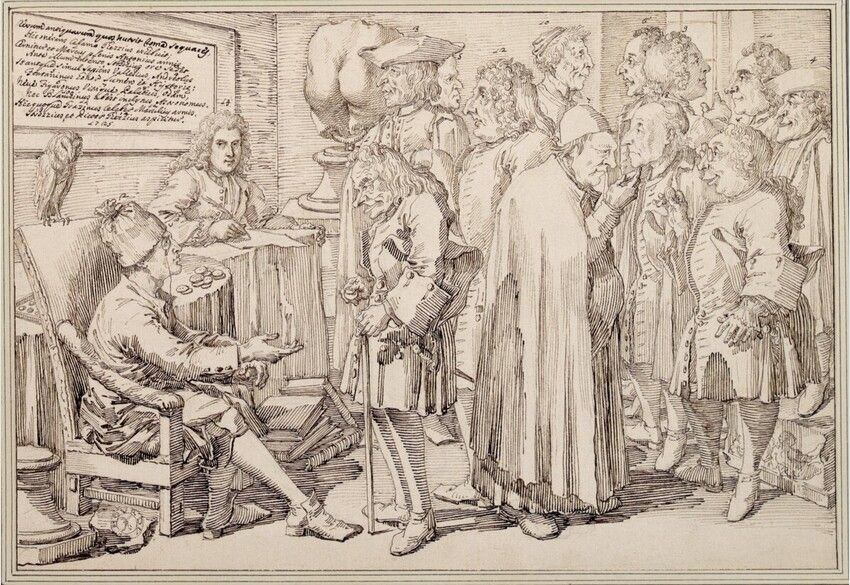
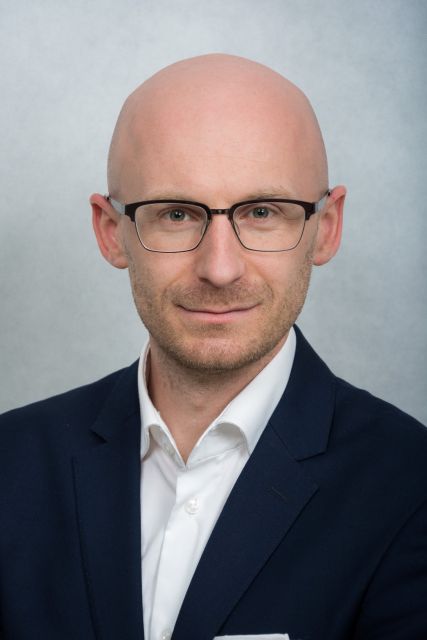
 Who may apply for funding?
Who may apply for funding? Which proposal should be submitted (OPUS or OPUS LAP)?
Which proposal should be submitted (OPUS or OPUS LAP)?
 Who may act as a principal investigator?
Who may act as a principal investigator? What topics can research projects cover?
What topics can research projects cover? What is the project duration?
What is the project duration? What type of positions are held by the research team members?
What type of positions are held by the research team members? How should the Polish project budget be planned?
How should the Polish project budget be planned? Open Access publication of research results
Open Access publication of research results Can proposals in this call include application for state aid?
Can proposals in this call include application for state aid? What is the proposal evaluation procedure?
What is the proposal evaluation procedure? What is reviewed in the merit-based evaluation of proposals?
What is reviewed in the merit-based evaluation of proposals? Who performs the merit-based evaluation of proposals?
Who performs the merit-based evaluation of proposals? When and how will the results be announced?
When and how will the results be announced? Where can additional information be found?
Where can additional information be found?